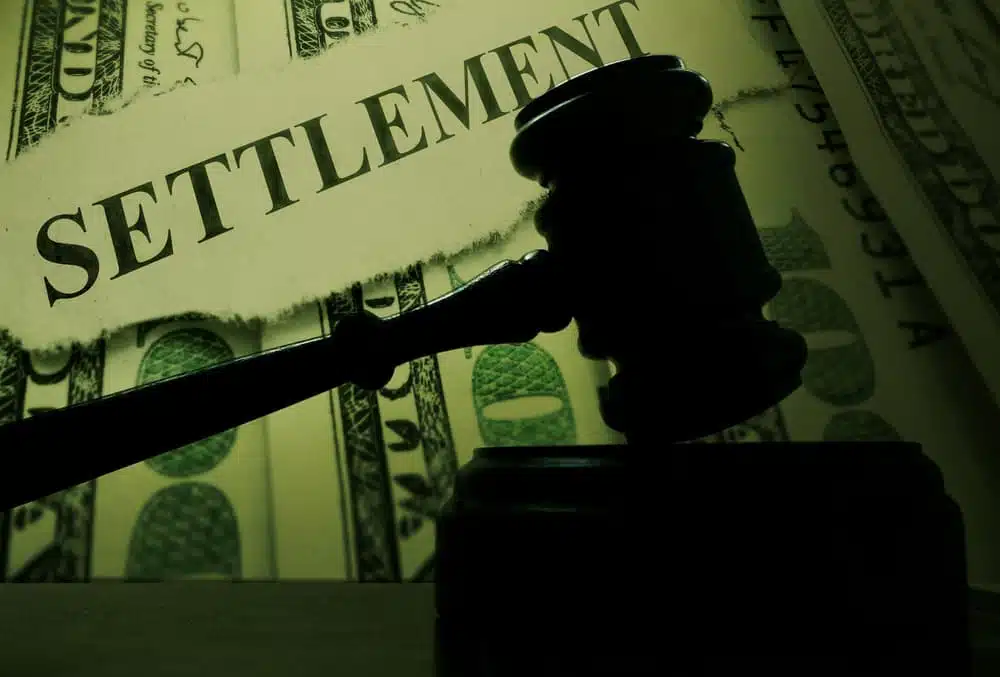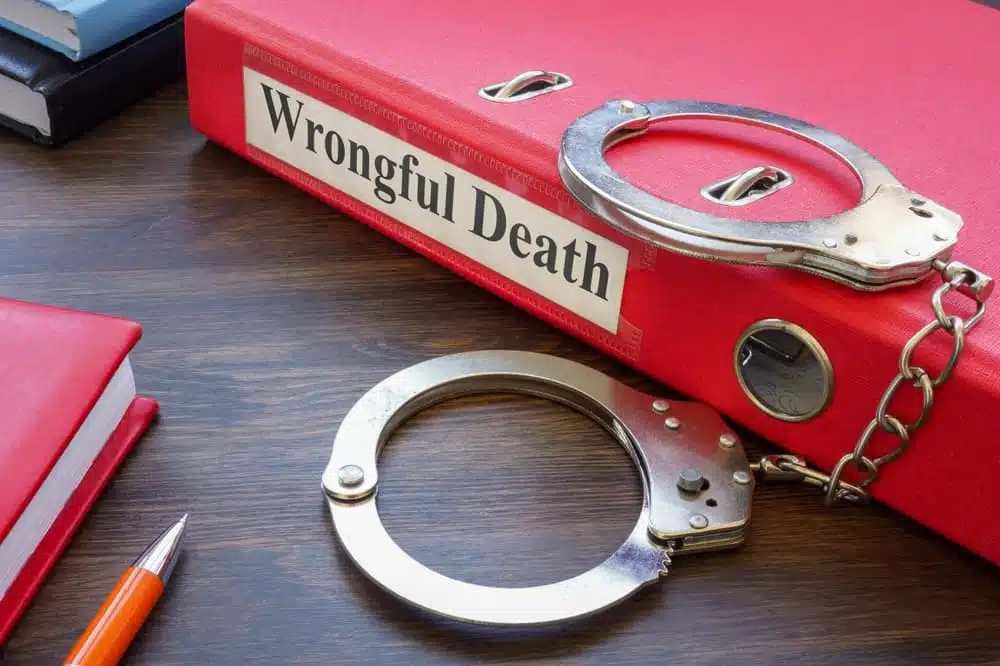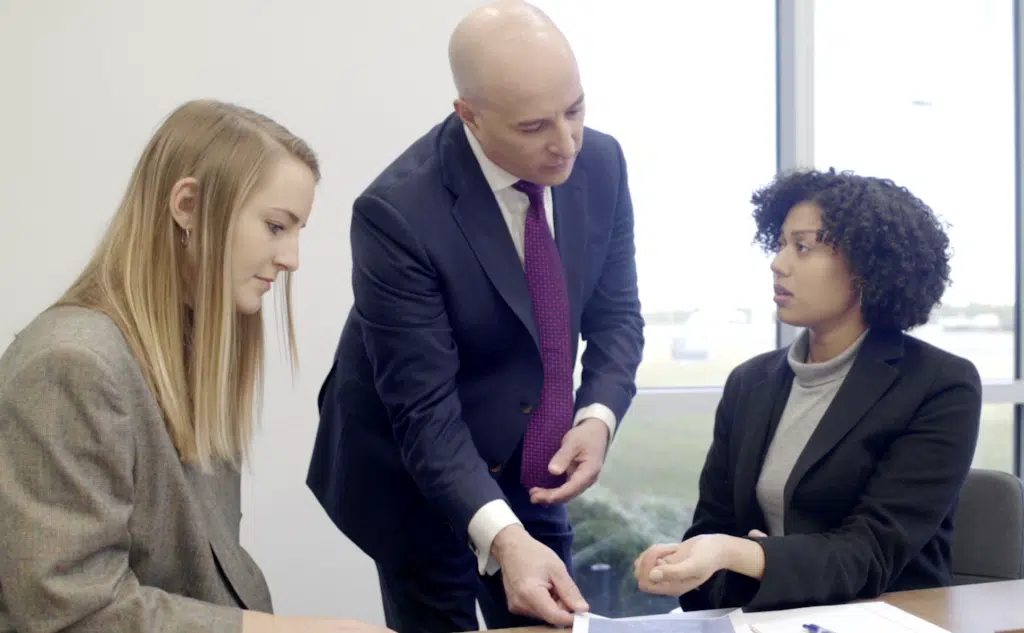
Losing a loved one is an emotionally devastating experience. When that loss occurs due to someone else’s negligence or wrongful act, the pain can be compounded by feelings of injustice and financial strain.
In such cases, surviving family members may seek compensation through a wrongful death lawsuit. A question that may arise in these situations is, “What is the average wrongful death settlement?”
The truth is, there is no single average settlement amount for wrongful death cases. Settlements can range from thousands to millions of dollars, depending on various elements specific to each case. However, understanding the factors that influence settlement amounts can help you gain a clearer perspective on what to expect in your situation.
If your loved one has died due to someone else’s negligence, reach out to a knowledgeable wrongful death lawyer near you today.
How New York Law Relates to Wrongful Death Claims
New York has specific laws governing wrongful death claims, which can significantly impact the settlement process and potential outcomes.
1. Statute of Limitations
In New York, the statute of limitations for filing a wrongful death lawsuit is generally two years from the date of the deceased person’s death. This time limit is strictly enforced, and failing to file within this period typically results in the loss of the right to sue.
2. Who Can File a Wrongful Death Claim
New York law restricts who can file a wrongful death lawsuit to a select group of people. Only the deceased person’s children, parents, spouse, or the personal representative of their estate have the legal standing to bring such a claim.
Extended family members, such as siblings or cousins, are not granted this right under New York law. The sole exception is if these extended family members have been officially appointed as the guardian or personal representative of the deceased’s estate.
In such cases, they would then have the authority to initiate a wrongful death lawsuit on behalf of the estate.
3. Recoverable Damages
New York law allows compensation in wrongful death cases. However, it’s important to note that New York does not permit recovery for the emotional pain and suffering of surviving family members, which is allowed in some other states.
4. Pecuniary Loss Rule
New York follows the pecuniary loss rule, which means that damages in wrongful death cases are generally limited to financial losses. This includes lost wages, benefits, and the value of services the deceased would have provided to their family.
5. Distribution of Damages
Any damages awarded in a wrongful death case are distributed to the deceased’s beneficiaries according to their economic loss. This distribution is determined by the court and may not necessarily follow the usual rules of inheritance.
6. Comparative Negligence
New York follows a pure comparative negligence rule. This means that if the deceased was partially at fault for the incident that led to their death, the damages awarded will be reduced by their percentage of fault.
7. Types of Incidents Covered
Wrongful death claims in New York can arise from various incidents, including but not limited to car accidents, medical malpractice, workplace accidents, defective products, and criminal acts.
8. Proof Required
To succeed in a wrongful death claim, the plaintiff must prove that the death was caused by the defendant’s wrongful act, neglect, or default, and that the deceased would have had a valid personal injury claim had they survived.
9. Settlements Involving Minors
If any beneficiaries of a wrongful death settlement are minors, the court must approve the settlement to ensure it’s in the best interests of the child.
A Wrongful Death Attorney Will Help Estimate the Value of Your Claim
Given the complexity of wrongful death cases, you must work with a skilled attorney who can accurately estimate your claim’s value. Here’s how an experienced wrongful death attorney will help:
- Case Evaluation: A knowledgeable attorney will thoroughly review all aspects of your case, including the circumstances of the death, available evidence, and potential liability issues. This comprehensive evaluation forms the foundation for estimating the claim’s value.
- Economic Analysis: Attorneys often work with economic experts to calculate the full extent of financial losses, including projected future earnings, benefits, and the value of services the deceased would have provided to their family.
- Precedent Review: Experienced wrongful death attorneys have access to databases of past settlements and verdicts in similar cases. Reviewing these precedents can provide insight into potential settlement ranges based on comparable situations.
- Insurance Policy Analysis: Your attorney will review all applicable insurance policies to determine the maximum available coverage and identify all potential sources of compensation.
- Negotiation Strategy: Based on their valuation of your claim, an attorney can develop an effective negotiation strategy to pursue a fair settlement. They understand when to push for higher amounts and when to consider settlement offers.
- Trial Value Assessment: If a fair settlement can’t be reached, your attorney can assess the potential value of taking the case to trial, weighing the risks and potential rewards.
- Damage Calculation: Attorneys are skilled in calculating both economic and non-economic damages, ensuring that all potential areas of compensation are considered.
- Future Cost Projection: In cases involving long-term consequences, such as the loss of a parent to young children, attorneys can project future costs and losses to ensure the settlement adequately provides for ongoing needs.
- Legal Obstacles: Experienced wrongful death attorneys can anticipate and address potential legal challenges.
Remember, initial consultations with wrongful death attorneys are often free, allowing you to discuss your case and get a preliminary assessment without financial obligation.
This can be an invaluable step in understanding the potential value of your claim and deciding how to proceed.
What Is a Wrongful Death Action vs. Survival Action in New York?
In New York, it’s important to understand the distinction between wrongful death actions and survival actions, as they serve different purposes and compensate for different losses:
Wrongful Death Action
A wrongful death action is a lawsuit filed on behalf of the surviving family members to recover damages they have suffered as a result of their loved one’s death. In New York, this action is governed by the Estates, Powers, and Trusts Law EPT § 5-4.1.
Key aspects of a wrongful death action include:
- Purpose: To compensate the deceased’s beneficiaries for their economic losses resulting from the death.
- Damages: Typically include lost wages, benefits, and services the deceased would have provided to the family.
- Non-recoverable damages: New York law does not allow recovery for the emotional pain and suffering of surviving family members in wrongful death actions.
- Beneficiaries: The damages are distributed to the deceased’s beneficiaries according to their economic loss, as determined by the court.
- Statute of Limitations: Generally two years from the date of death.
Survival Action
A survival action is a continuation of the personal injury claim that the deceased could have brought had they survived. This action is governed by New York’s EPTL § 11-3.3.
Key aspects of a survival action include:
- Purpose: To recover damages the deceased suffered between the time of injury and death.
- Damages: May include medical expenses, lost wages, and pain and suffering experienced by the deceased before death.
- Beneficiaries: Any damages awarded become part of the deceased’s estate and are distributed according to the will or intestacy laws.
- Statute of Limitations: Generally three years from the date of injury, but this can be complicated if the death occurs later.
Combined Actions
In some cases, wrongful death and survival actions are combined into a single lawsuit. This allows for a more comprehensive approach to seeking compensation for all losses related to the death.
Key differences:
- Timing: Wrongful death actions focus on losses after death, while survival actions address damages from the time of injury to death.
- Beneficiaries: Wrongful death damages go directly to family members, while survival action damages go to the estate.
- Types of Damages: Wrongful death focuses on economic losses to the family, while survival actions can include the deceased’s pain and suffering.
An experienced wrongful death attorney can help determine which actions are appropriate for your specific situation and how to maximize the potential recovery.
What Are the Chances of Winning a Wrongful Death Suit?
The chances of winning a wrongful death suit can vary widely depending on the specific circumstances of each case.
- Evidence Strength: The more compelling and clear the evidence of the defendant’s negligence or wrongful act, the higher the chances of success. This can include physical evidence, witness testimonies, expert opinions, and documentation.
- Liability Clarity: Cases where liability is clear-cut (e.g., a drunk driver causing a fatal accident) generally have higher success rates than those with complex or disputed liability.
- Causation: Your lawyer must be able to prove that the defendant’s actions directly caused the death. Cases with a clear causal link have better chances of success.
- Statutory Compliance: Ensuring all legal requirements are met, such as filing within the statute of limitations, is crucial for maintaining the viability of your case.
- Legal Representation: An experienced wrongful death attorney can significantly improve your chances of success by building a strong case, anticipating challenges, and effectively presenting evidence.
- Settlement vs. Trial: Many wrongful death cases are settled out of court. The chances of winning through a favorable settlement can be higher than going to trial, as trials involve more uncertainty.
- Comparative Negligence: As mentioned, in New York, if the deceased was partially at fault, it doesn’t bar recovery, but it can reduce the amount of damages awarded.
- Documentation: Thorough documentation of economic losses, including expert testimony on future earnings and the value of services, can strengthen your case.
- Defendant’s Conduct: If the defendant’s actions were particularly reckless or intentional, it could increase the likelihood of a favorable outcome, possibly including punitive damages.
While these factors can influence the outcome, it’s important to remember that each case is unique. Many wrongful death cases that initially seem challenging can result in favorable outcomes with skilled legal representation. Conversely, cases that appear straightforward can face unexpected complications.
A thorough case evaluation by an experienced wrongful death attorney is the best way to assess the potential for success in your specific situation. They can provide a realistic assessment of your case’s strengths and weaknesses, helping you make informed decisions about how to proceed.
How Much Does a Wrongful Death Lawyer Cost?
Here’s an overview of how wrongful death lawyers typically structure their fees:
Contingency Fee Basis
Many wrongful death attorneys work on a contingency fee basis. This means:
- No Upfront Costs: You don’t pay the attorney legal fees unless they win your case or secure a settlement.
- Percentage of Recovery: The attorney’s fee is a predetermined percentage of the amount recovered.
Benefits of Contingency Fees:
- Accessibility: This arrangement allows people to pursue justice regardless of their financial situation.
- Aligned Interests: The attorney is motivated to maximize your recovery.
- No Financial Risk: If the case is unsuccessful, you don’t owe the attorney legal fees for their time.
Free Initial Consultation
Most wrongful death attorneys offer a free initial consultation. This allows you to:
- Discuss the merits of your case
- Understand the attorney’s experience and approach
- Learn about their fee structure without any obligation
Transparency and Written Agreements
Reputable attorneys will be transparent about their fees and provide a written fee agreement. This agreement should clearly outline:
- The percentage the attorney will receive
- How additional costs will be handled
- Any other financial arrangements or obligations
Remember, while cost is an important factor, it shouldn’t be the only consideration when choosing a wrongful death attorney. Experience, results, and your comfort level with the attorney are equally important factors in making your decision.
Talk to the Wrongful Death Attorneys at the Rothenberg Law Firm LLP for Free Today
Don’t let concerns about legal fees or the process deter you from seeking justice. Our team at the Rothenberg Law Firm LLP is here to guide you every step of the way.
Contact us today for your free consultation. Let us help you work towards securing the justice and compensation your family deserves. Our compassionate team of personal injury lawyers is ready to listen to your story and provide the skilled legal representation you need during this difficult time.





